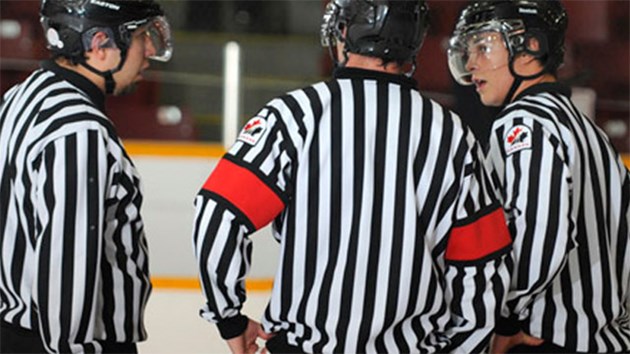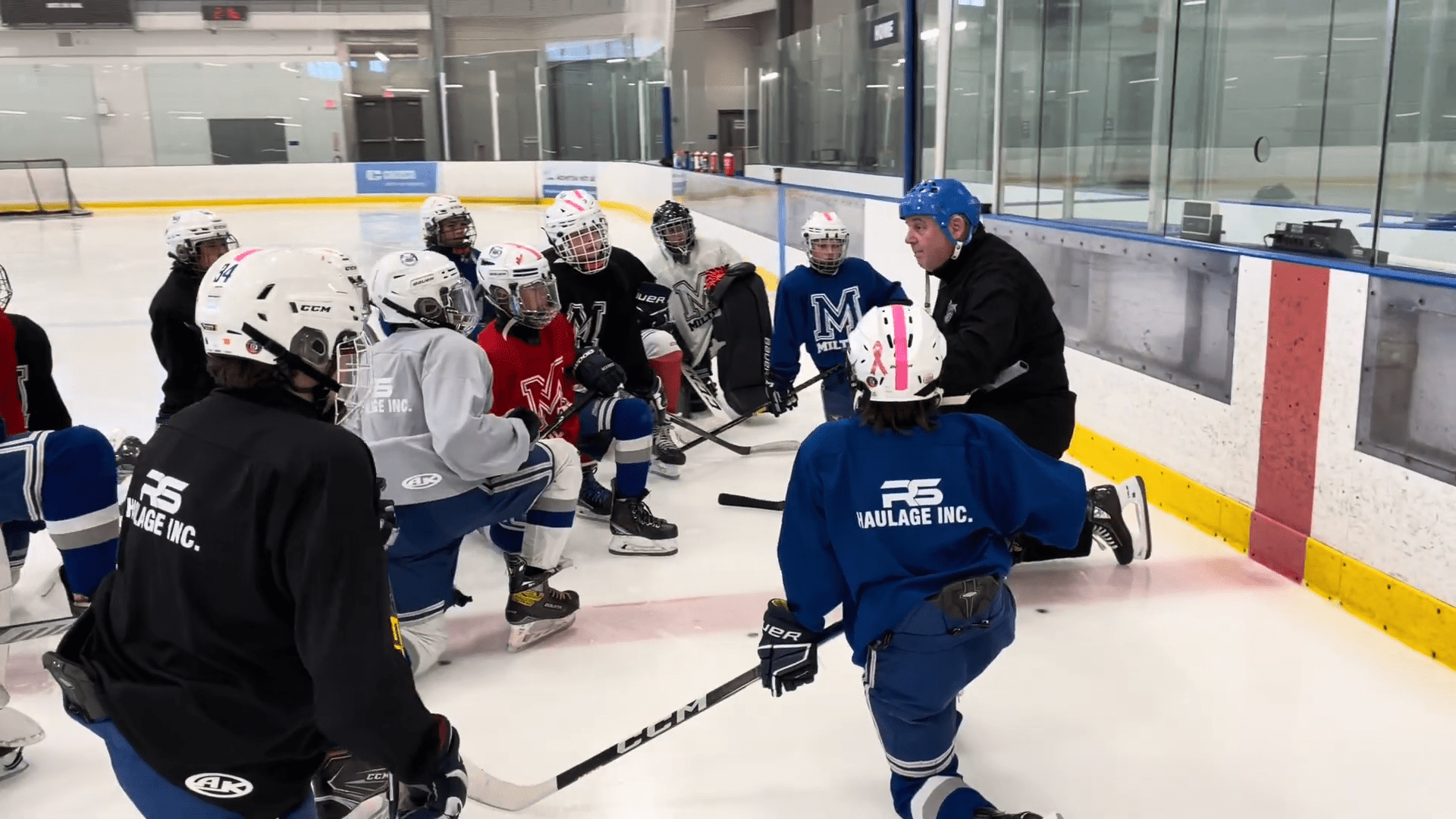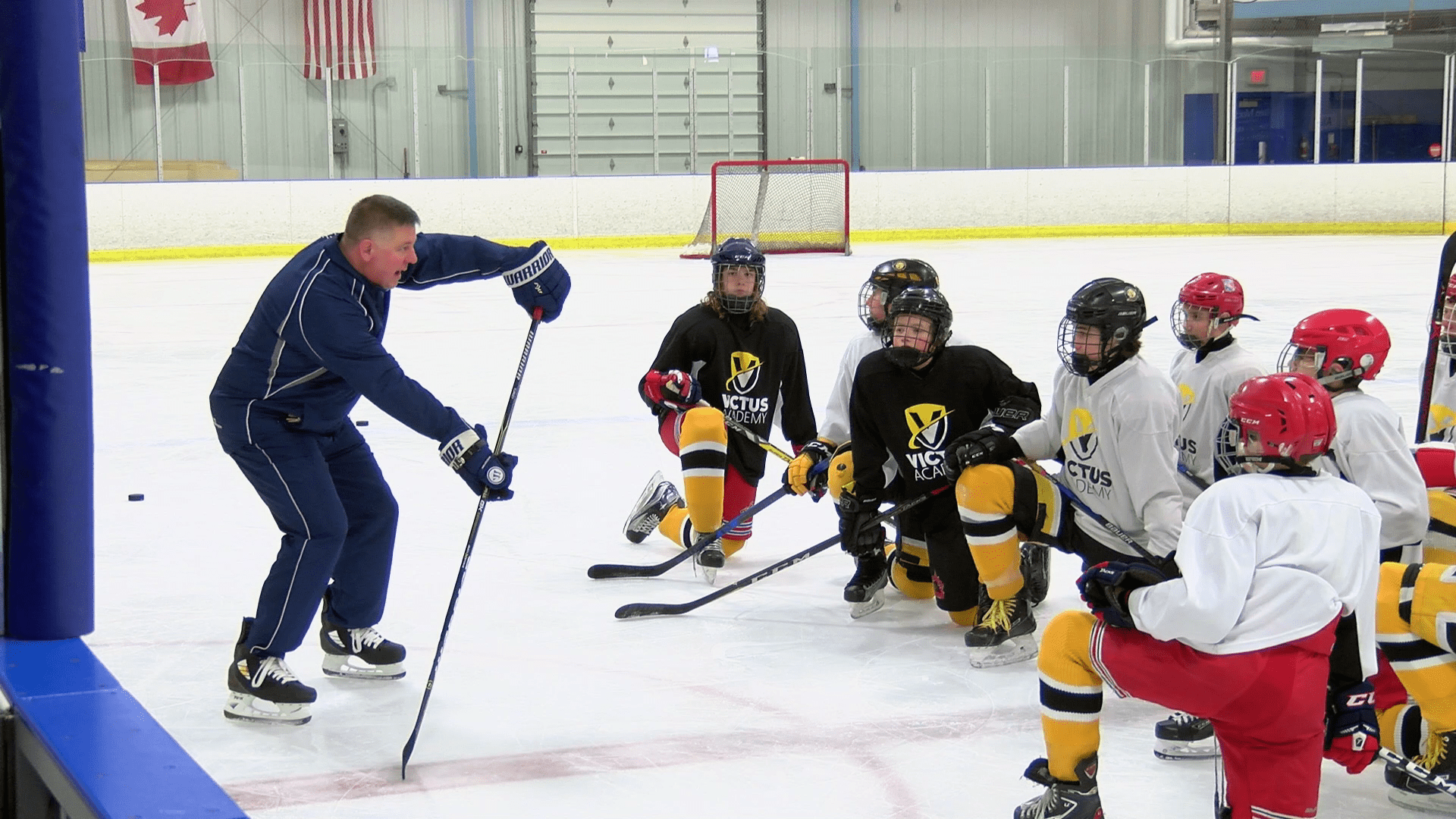Let’s face it, referees can sometimes frustrate us, and at times even cause some of us to lose control of our emotions. We may feel like they are unfair, calling for penalties that we don’t see and letting the other team get away with everything. The truth is, referees are human and make mistakes. They aren’t out to get you, and they generally get things right. However, when we feel that we have been slighted by them, we often form an unwarranted negative opinion, causing some of us to behave poorly and consequently making a scene. It’s okay to voice your opinion to a referee, but it should be done professionally and courteously. Here are some do’s and don’ts of referee communication for coaches, parents, and players.
Coaches
Do: Introduce Yourself and Your Team
Youth hockey referees are doing a service for your team and for the league, so it may be nice to introduce yourself and show some professional courtesy. They will be relieved to see that they are working with a calm, personable coach rather than someone who views them as the enemy. They take a lot of undeserved heat, so making them feel welcome to the league can help strengthen your relationship with them. This isn’t to “grease the wheels,” but merely to show appreciation for their work.
Don’t: Try to Gain Unfair Advantages
Some youth leagues take place in tightly knit communities where many people know each other. Even if the ref is your best friend, you shouldn’t try to gain an advantage over the other team. This is dishonest and will only hurt your team in the long run if they benefit from sloppy play. The refs are there to do a job and you should let them do it as objectively as possible.
Do: Respectfully Tell Your Opinions
If you feel that a ref made a bad call, it’s okay to let him know why you feel this way. Perhaps refer to a rulebook or point out that he might have missed something on the other end of the ice. As mentioned before, refs are human and will make mistakes. Being respectful in your objections to their calls will make them in turn respectful of you and more likely to listen to your point of view.
Don’t: Insult or Berate the Refs for Missed Calls
The refs are people too, and it doesn’t help anybody on the ice if you start hurling insults at them because you feel your team got the short end of the stick. It could give the refs a poor opinion of your ability as a coach and might have parents wondering the same thing. You don’t want to create any grudges or embarrass your team, so bite your tongue even if you feel it’s the worst call that you’ve ever seen. It could also result in you getting a penalty!
Parents
Do: Show Respect for the Officiating Crew
Everyone wants their kid to play well and remain safe on the ice, and the refs are a big part of that. They are trained to make the calls that should help to minimize the risk of injuries and keep the game moving along fairly and smoothly. You should be glad that they are on the ice and that they are looking out for the safety of the kids. Let them know that you appreciate their efforts and congratulate them on a job well done. They will be thankful for parents like you.
Don’t: Yell at or Taunt the Refs from the Stands
So, your kid had a great chance at a goal and you think the ref made a poor call that took it away from him. You may be right, but chances are that the trained referee had a better view of the play and more thorough understanding of the rules, and he deserves the respect that comes with that. Even if you feel that it was a blatant missed call, you will do everybody a favor if you just hold it back and let it ride. This is youth hockey and the most important part is that the kids have fun and improve their skills. A loudmouth, angry parent in the crowd ruins that for everybody.
Do: Wait Until After the Game to Speak with Refs
If you want to talk to a ref, either to show appreciation or discuss something about the game, be courteous and wait until afterwards. The ref has a job to do and it’s disrespectful to everyone to interrupt during the game. Wait it out and in most cases you can speak the ref afterwards.
Players
Do: Thank the Ref for Working the Game
The refs work very hard and are often underappreciated, so thank them and show that you’re happy to have them there. You might not always think that they make the right call, but they are following a fast-paced game and working hard. Let them know that they are valued members who share the ice with you.
Don’t: Complain About Past Calls
Whether the call happened 2 months or 2 minutes ago, don’t hold onto grudges or dwell on mistakes. You will come off as angry and immature and won’t gain any favor in the mind of the referee. If something does go your way, keep your head up and continue to play the game the way you always do. The ref most likely won’t change his call anyway, so you aren’t helping anyone by continuing to chirp at him. This will also distract you from focusing on your own game and can result in a penalty.
Don’t: Use Foul or Offensive Language Towards the Refs
Just like coaches and parents, players are responsible for being respectful and playing the game the right way. The ref has the power to kick you out of the game for unsportsmanlike conduct, so keep it clean and appreciative. You don’t want to hurt your team just because your temper got the best of you.
Do: Compliment the Ref on a Job Well Done
Whether he saw something from across the ice or simply had a solid game of officiating, give the ref the compliments he deserves. It isn’t easy to officiate a hockey game, so he’ll appreciate that you notice his talent and good eye.
Sign up for our Monthly Newsletter!






